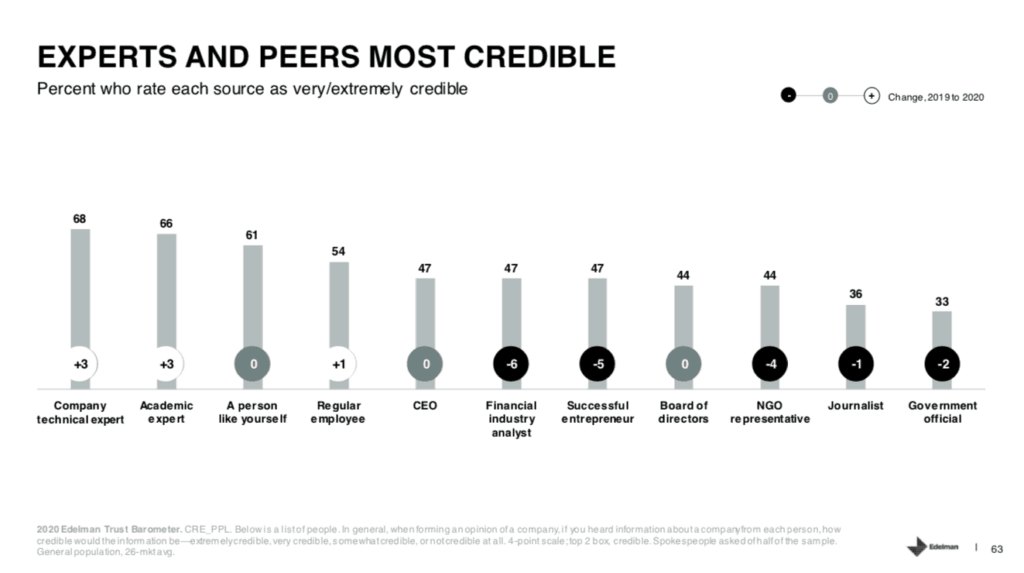
Coronavirus Crisis Communications: 4 Ideas to Safeguard Trust
The coronavirus crisis surrounds us with uncertainties
As hard as a crisis can be in “normal times,” it’s 10 times tougher to do coronavirus crisis communications.
Coronavirus is tragic news for people’s health, pocketbooks and communities. Each of us is suffering in a uniquely personal way.
Right now we all suffer uncertainty – when the unknowns outweigh the knowns. Which makes people all the more skeptical as they read the news or listen to leaders.
The best leaders are modelling the right behaviors during this crisis. To be a trusted leader, you must:
Lead with empathy.
Acknowledge how people feel and express your concern, compassion and caring for people – with words and actions.
Facts matter, but facts don’t change people’s minds. Humans are driven by emotions. In a crisis:
It takes heroes to keep the world working – healthcare workers, delivery people, essential workers. We need to support and celebrate them. To start, as Warren Buffett suggests, let’s learn their names.
It takes courageous leaders like U.S. Navy Captain Brett Crozier, who stood up for his crew on the Theodore Roosevelt. He put his team first, even though it cost him his job.
Tell the truth.
The whole truth and nothing but the truth.
“The shared truth must guide us,” New York Governor Andrew Cuomo said.
If you want to be trusted:
- Don’t sugarcoat bad news.
- Don’t withhold the truth.
- Don’t overpromise unless you’re absolutely sure you can deliver.
A big temptation for leaders right now is to pick a date out of the air and announce everything will be better by then. But it’s clear that no one can forecast such dates exactly – they can only choose when to gamble.
If you fall into a bad habit, like forecasting when the crisis will end, get used to being wrong. As author Ruchir Sharma wrote in the New York Times, “When Forecasters Get It Wrong: Always.”
Stay in your lane.
Just because you’re a leader, it doesn’t make you an expert on everything.
If you’re not a medical expert, bring one onto your crisis team to address medical topics. Make sure your message aligns 100% with your medical expert’s message on all coronavirus crisis communications.
Remember, the most trusted sources of information are technical and academic experts, who are believed by 2 out of 3 people. Unfortunately, CEOs are trusted by less than half of people, as you see in this chart from the Edelman Trust Barometer.

Admit what you don’t know.
One of the hardest answers for any leader to give is an honest “I don’t know” or “Nobody knows.” For example:
- 4 out of 5 S&P 500 companies have withdrawn quarterly financial guidance. They are saying “I don’t know” how 2020 will turn out.
- At Berkshire Hathaway, Warren Buffett and Charlie Munger draw a bright line around questions that are “too hard,” a pile of questions they don’t know how to answer.
- Be clear with yourself and others about what you know, and what you don’t. When you don’t know, it’s ok to admit it.
As you communicate during the coronavirus crisis, build trust in your leadership as you:
- Lead with empathy.
- Tell the truth.
- Stay in your lane.
- Admit what you don’t know.
You’ll find more Crystal Clear Tips on crisis communications here:





